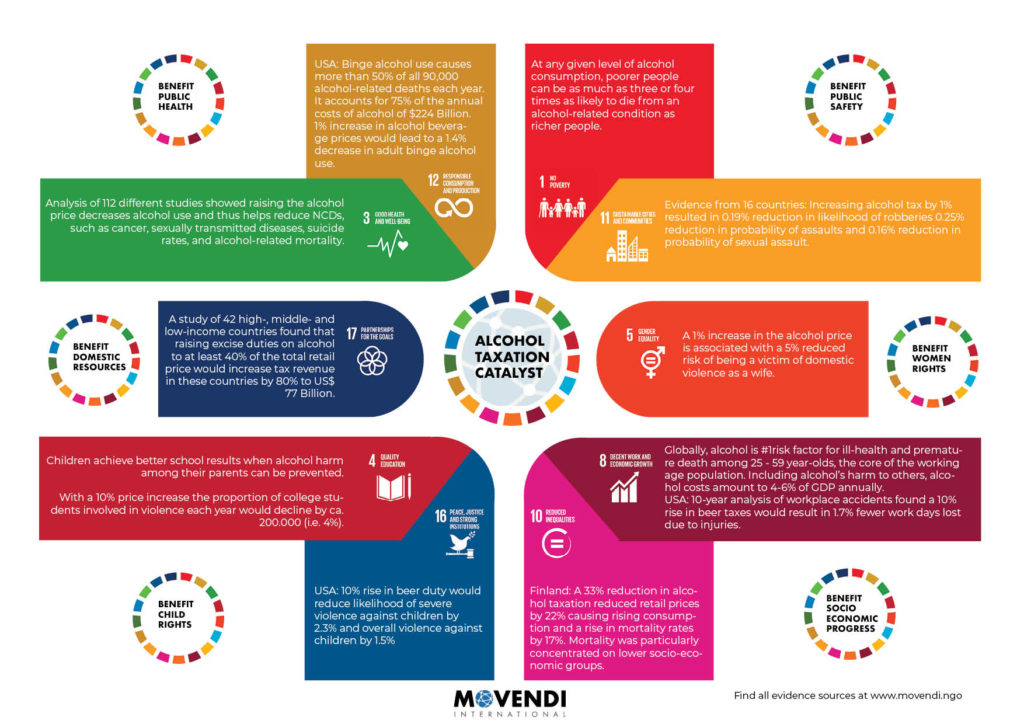The IMF called on the government to leverage underutilized taxes to boost domestic revenues. Alcohol is currently taxed below accepted levels in the country.
All non-fuel taxes in Ghana made up only 0.1% of GDP in 2018 and 2019. Comparatively, in the wider African region, Uganda and Kenya raise about 2% GDP in excise taxes.
The IMF emphasizes that tax reforms for alcohol and tobacco can generate 0.45% of GDP and help promote healthier behaviors among the population.
Currently, Ghana’s tax-to-GDP ratio is at an average of 12% over the past five years. This is below the 25% rate for middle-income countries. And it is below the 20% rate for ECOWAS countries of which Ghana is a signatory. Ghana’s ratio is far below other countries in the African region as well: For example, for South Africa and Kenya, the 5 year tax to GDP ratio is 26% and 16% respectively.
Along with increasing taxes to boost development, the IMF called for simple payment platforms for people to register and pay taxes easily.
People support alcohol taxation
Ghanaian communities are in support of increasing alcohol taxes. As Movendi International reported previously, Ghanaian communities have called on the government to increase alcohol taxation in the country.
Despite the fact that the majority of people in Ghana and other low- and middle-income countries live alcohol-free, the alcohol industry aggressively targets these societies to grow their market and drive profits. For Big Alcohol the growing middle class and young population in the African region is a market to be captured. The industry is already making inroads in countries like Ghana by exploiting the complete lack of or weak alcohol laws.
Increasing alcohol taxes is the single most cost-effective solution, as recommended by the World Health Organization’s Best Buys and the SAFER technical package. Alcohol taxation is a triple win measure, generating revenue for the government, reducing alcohol harm and related costs and protecting Ghanaians from the harm caused by the products and practices of the alcohol industry.
Alcohol tax – a triple-win measure
Movendi International supports the development and implementation of public health-oriented alcohol taxation as a key policy solution to achieve health and development for all.
- An innovative illustration depicts, for instance, the benefits of alcohol taxation across multiple Sustainable Development Goals; and
- Resource material helps understand the potential of alcohol taxation’s critical role in building sustainable health systems and achieving universal health coverage.

Movendi International’s 2015 report on alcohol taxation concluded: Alcohol taxation is a triple-win measure for increasing fiscal space, boosting health promotion, and financing sustainable development.
